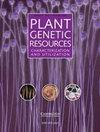Proactive management approach of seed PGRFA conservation during the pandemic of coronavirus disease (COVID-19) in Indonesia
IF 0.7
4区 生物学
Q3 PLANT SCIENCES
Plant Genetic Resources: Characterization and Utilization
Pub Date : 2022-01-01
DOI:10.1063/5.0075531
引用次数: 0
Abstract
Conserving agricultural genetic resources (AGR) is one of state commitment to support food security and sustainable agricultural system. The pandemic of COVID-19 forced Indonesia government to issued policies which resulting on significant reduction in operational costs in AGR conservation and limitation of activities. This paper describes the proactive approach taken in IAARD-ICABIOGRAD Gene Bank to maintain the sustainability of AGR conservation during the pandemic situation. Several measures were taken including laying off some contract staff, reducing working hours, delaying plantation schedule, relocation plantation site, and optimizing on seed monitoring. The delay in plantation schedule and relocation of planting site caused of less optimal of yield in soybean and mung bean regeneration and crop failure of some accessions in rice. The lack of resources caused several activities cannot be performed. Delay of seed processing increase seed damage and inadequate rogueing during seed production cause disruption of genetic integrity of rice accessions. The optimization on seed monitoring resulted in the safely regenerated of a total of 112 rice accessions and 149 soybean accessions with very low viability. Adequate support is needed for further gene bank operational to resume the incomplete activities, to set back genetic integrity, and to set better management system. © 2022 Author(s).印度尼西亚冠状病毒病(COVID-19)大流行期间种子保护的主动管理方法
保护农业遗传资源是国家支持粮食安全和可持续农业系统的承诺之一。2019冠状病毒病大流行迫使印度尼西亚政府颁布政策,大大降低了AGR保护和限制活动的运营成本。本文介绍了IAARD-ICABIOGRAD基因库在疫情期间为保持AGR保护的可持续性而采取的积极措施。采取了裁员部分合同工、减少工时、推迟种植进度、搬迁种植场地、优化种子监控等措施。由于种植计划的推迟和种植场地的迁移,导致大豆和绿豆的产量不理想,水稻部分材料的再生和歉收。资源不足导致一些活动无法执行。种子加工的延迟会增加种子的损害,而种子生产过程中的不适当的处理会破坏水稻品种的遗传完整性。通过种子监测优化,使112个水稻品种和149个大豆品种获得了极低活力的安全再生。需要充分支持基因库进一步运作,以恢复未完成的活动,恢复遗传完整性,并建立更好的管理制度。©2022作者。
本文章由计算机程序翻译,如有差异,请以英文原文为准。
求助全文
约1分钟内获得全文
求助全文
来源期刊

Plant Genetic Resources: Characterization and Utilization
Agricultural and Biological Sciences-Agronomy and Crop Science
CiteScore
2.80
自引率
0.00%
发文量
29
审稿时长
>12 weeks
期刊介绍:
Plant Genetic Resources is an international journal which provides a forum for describing the application of novel genomic technologies, as well as their integration with established techniques, towards the understanding of the genetic variation captured in both in situ and ex situ collections of crop and non-crop plants; and for the airing of wider issues relevant to plant germplasm conservation and utilisation. We particularly welcome multi-disciplinary approaches that incorporate both a technical and a socio-economic focus. Technical aspects can cover developments in technologies of potential or demonstrated relevance to the analysis of variation and diversity at the phenotypic and genotypic levels.
 求助内容:
求助内容: 应助结果提醒方式:
应助结果提醒方式:


